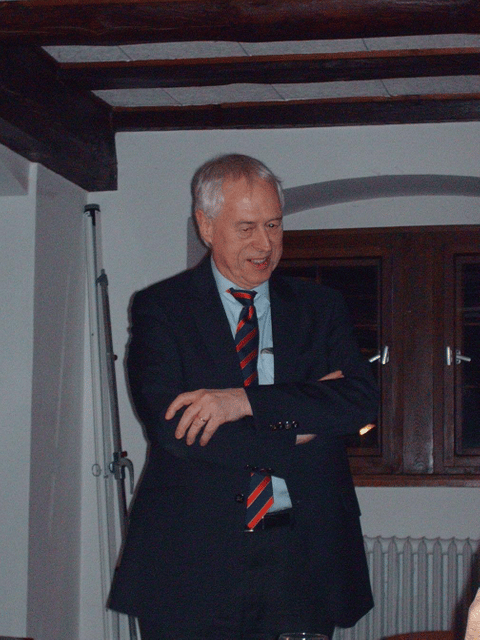Jürgen W. Falter

Jürgen W. Falter

Jürgen W. Falter | |
|---|---|
| Born | (1944-01-22)January 22, 1944 Heppenheim, Hesse |
| Nationality | German |
| Alma mater | Saarland University Free University of Berlin (Diplom, 1968) |
| Scientific career | |
| Fields | Political science |
| Institutions | University of Mainz |
| Doctoral advisor | Karl Kaiser, Gerald L. Eberlein |
| Doctoral students | Kristina Schröder |
Jürgen W. Falter (born January 22, 1944) is a German political scientist. His research interests include political extremism and xenophobia.[1]
Born in Heppenheim, Hesse, Falter enrolled with a political science and modern history major at the University of Heidelberg in 1963 before finishing his studies with a Diplom at the Free University of Berlin in 1968.[2] He earned his doctoral degree in 1973 and his Habilitation in 1981, both from the Saarland University.[2]
In 1983 he accepted a chair at the Otto-Suhr-Institut in Berlin, a position he held until 1992. In 1993 he joined faculty at the University of Mainz.[2]
Jürgen W. Falter | |
|---|---|
| Born | (1944-01-22)January 22, 1944 Heppenheim, Hesse |
| Nationality | German |
| Alma mater | Saarland University Free University of Berlin (Diplom, 1968) |
| Scientific career | |
| Fields | Political science |
| Institutions | University of Mainz |
| Doctoral advisor | Karl Kaiser, Gerald L. Eberlein |
| Doctoral students | Kristina Schröder |
Selected publications
——— (1978), "Some Theoretical and Methodological Problems of Multilevel Analysis Reconsidered", Social Science Information, 17 (6): 841–869, doi:10.1177/053901847801700604 [11] .
——— Rattinger, Hans (1984), "Normal Vote Analysis. A Methodological Note", European Journal of Political Research, 12 (3): 277–288, doi:10.1111/j.1475-6765.1984.tb00089.x [12]
——— Schumann, Siegfried (1988), "Affinity towards right-wing extremism in Western Europe", West European Politics, 11 (2): 96–110, doi:10.1080/01402388808424684 [13] .
——— (1990), "The Two Hindenburg Elections of 1925 and 1932: A Total Reversal of Voter Coalitions" [14] , Central European History, 23 (2/3): 225–241, doi:10.1017/s0008938900021361 [15] , JSTOR 4546175 [16] .
——— (1992), "Economic Debts and Political Gains: Electoral Support for the NSDAP in Agrarian and Commercial Sectors, 1928-1933" [17] , Historical Social Research, 17 (1): 3–21.
——— Brustein, William (1995), "Who Joined the Nazi Party? Assessing Theories of the Social Origins of Nazism", Zeitgeschichte, 22 (3/4): 83–108.
——— Klein, Markus (1996), "The Mass Basis of the Extreme Right in Europe in a Comparative Perspective", Research on Democracy and Society, 3: 41–61.